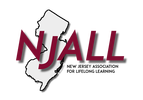|
This paper from the Open Door Collective urges adult educators to make common cause with other organizations working to reduce income inequality in American life. NJALL is proud to be a member of the New Jersey Anti-Poverty Network. Basic Skills for Economic Security: How Adult Educators, Adult Learners, and Anti-Poverty Organizations Can Work Together Prepared by Paul Jurmo, Ed.D., Nicholas Montalto, Ph.D., and David J. Rosen, Ed.D. The Open Door Collective November 5, 2019 Overview This paper describes why and how anti-poverty organizations and adult basic skills programs can collaborate to help individuals who have basic skills-related challenges (e.g., lower levels of literacy, English language, and numeracy skills needed for work, family, and civic roles; lack of a high school credential; learning disabilities) to improve their economic security and that of their families and communities. In so doing, these partnerships can also contribute to the building of a more equitable, efficient, and sustainable economy. The paper identifies steps that these two stakeholder groups might take to understand and build on existing collaborative models to create new partnerships. ODC’s Mission and Work The Open Door Collective (ODC) was formed in 2014 by a small group of adult basic skills educators and researchers who (1) were concerned about the problem of poverty in the United States, (2) saw adult basic skills education as a tool for improving economic security, (3) recognized that this was in keeping with adult basic education’s historic role in earlier social justice movements, and (4) understood that, to effectively help reduce poverty, adult basic education needs to partner with other groups whose mission includes reducing poverty and income inequality. Since then, ODC’s members have issued a series of Make the Case papers and Can-Do Guides and have made conference presentations showing why and how adult educators can work with other stakeholders in a number of ways to reduce poverty. These other stakeholders can include public libraries; community health centers; and organizations involved with workforce development, digital inclusion, criminal justice reform, public health, immigrant and refugee advocacy and integration, safety net services, housing, disability rights advocacy, environmental sustainability, and other issues. (Visit http://www.opendoorcollective.org to see ODC documents and other resources.) We define “anti-poverty partners” broadly as organizations and individuals that have as a primary or secondary goal the protection and improvement of the economic security of low-income people. These could include public and private bodies that:
Who Are the Adults with Basic Skills Limitations? How Is their Economic Security at Risk? An estimated 36 million or more adults in the United States have limitations in their basic skills. They represent a diverse mix of:
These adults can face a number of obstacles to employment and financial well-being:
How Basic Skills Programs Have Helped Learners Enhance their Economic Security The adults who enroll in basic skills programs often do so with the hope that they will be better able to perform their current jobs better, get a better job, manage their finances, or otherwise improve the economic well-being of themselves and their families. In response, local adult basic education providers use a number of strategies, including:
Why and How Anti-Poverty Groups Might Partner with Adult Basic Skills Programs By working with adult basic education programs, anti-poverty organizations might be better able to serve populations having basic skills challenges. Similarly, adult educators can better help their low-income learners by tapping into the expertise and other resources of anti-poverty organizations. Here are nine ways these two kinds of organizations might collaborate:
Effective partnerships require good planning and continuous communication and improvements to ensure that joint efforts meet relevant needs of participating organizations and the clients they serve. To get started, anti-poverty and adult basic skills programs should do initial background research about how social justice stakeholders have worked with adult basic skills programs. (See the “ODC Papers” and “Resources” sections of the ODC web site for more information about joint efforts.) For example:
In Conclusion Anti-poverty and adult basic skills organizations have much in common in terms of their missions and the populations they serve. Through new, informed, and creative partnerships that build on past and current efforts, these stakeholders can help more individuals who have basic skills challenges -- and their families and communities -- to improve their economic security and contribute to our common good. to edit. Comments are closed.
|
Categories |

 RSS Feed
RSS Feed
